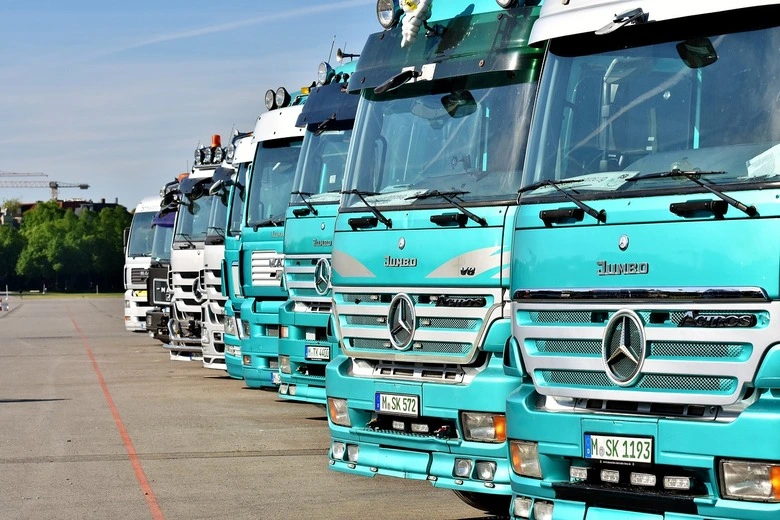Table of Contents
Introduction
Trucking companies must adapt to stay ahead in an industry that’s always on the move. Understanding current needs is pivotal with the constant ebb and flow of regulations, fuel prices, and technology. The modern trucking landscape is vastly different from what it was even a decade ago. From changing consumer expectations to the rapid advancement of digital solutions, trucking company face unique challenges and exciting opportunities. Embracing these changes is essential for companies aiming to streamline operations, reduce costs, and remain a vital player in this crucial industry. Additionally, adapting to these shifts ensures longevity in the market, promoting growth and sustainability.

The Rise of Modern Trucking Tools
Modernization isn’t just for tech companies. Today’s trucking firms leverage cutting-edge tools to streamline operations and improve efficiency. Gone are the days when trucking relied solely on paper logs and physical maps. With the integration of digital tools, companies can now tap into powerful analytics, achieve real-time communication, and predict potential challenges. These modern tools enhance the company’s operational efficiency and improve the overall customer experience by ensuring timely and safe deliveries. As technology evolves, companies harnessing these advancements will inevitably lead the industry.
1. Digital Dispatch Systems: No more radio-based assignments. A digital dispatch system allows for real-time tracking, better route optimization, and immediate communication. Such systems also reduce the margin of error, ensuring that cargo reaches its destination efficiently and effectively. Integrating this technology facilitates smoother workflow, benefiting the company and its clientele.
2. Telematics: Equip your fleet with telematics to monitor driver behavior, vehicle performance, and fuel consumption. By understanding these metrics in real-time, companies can address issues promptly, prolong their vehicles’ life, and improve their fleet’s overall safety. Embracing telematics is embracing the future of fleet management.
Emphasizing Fleet Safety
Safety is paramount. With road accidents posing significant risks, trucking companies must invest in safety training and equipment. It’s not just about compliance; it’s about your team’s well-being and your company’s reputation. A single accident can have far-reaching consequences, from legal implications to losing valuable contracts. Therefore, ensuring drivers are well-equipped with the latest safety knowledge and tools can provide an immeasurable return on investment. The added protection layer ensures trustworthiness in clients’ eyes and instills confidence in drivers.
1. Regular Training Sessions: Keep your drivers updated on safety protocols. Regular refresher courses can make all the difference. It reinforces best practices and introduces new methods to keep drivers safe and reduce potential liabilities. This continual learning process ensures consistent safety standards.
2. Advanced Safety Equipment: From collision avoidance systems to lane departure warnings, outfitting your fleet with the latest safety tech can save lives and reduce costs. These tools offer a proactive approach, alerting drivers to potential hazards before they become critical. As technology advances, it’s vital to stay abreast of the latest innovations in safety.
Cost-effective Trucking Solutions
Finding ways to optimize costs without sacrificing quality is key in a competitive landscape. With slim margins and increasing overheads, trucking companies must continually find innovative solutions to maintain profitability. By adopting strategic measures and leveraging the power of technology, businesses can find the balance between offering competitive pricing and ensuring operational excellence. Cost efficiency is not merely a strategy but a necessity for survival and growth in today’s saturated market.
1. Outsource Non-core Activities: Consider outsourcing tasks like accounting or IT support to specialists, letting you focus on what you do best. This allows for more streamlined operations and taps into the expertise of specialists who can bring more value to the table. Leveraging external expertise can provide a competitive advantage.
2. Bulk Purchasing: Buying in bulk, especially for essentials like fuel or spare parts, can result in significant savings. Consolidating orders or entering into long-term supply agreements can lead to volume discounts and more predictable costs. Strategic sourcing decisions can drastically impact the bottom line.
Sustainable Trucking Practices
The world is going green, and so should your trucking company. Adopting sustainable practices isn’t just good for the planet—it’s good for business, too. Consumers and stakeholders are becoming increasingly eco-conscious, expecting the companies they work with to reflect these values. Sustainability in trucking doesn’t just mean using cleaner fuels; it encompasses a holistic approach that considers every aspect of the operation, from route planning to waste management. A commitment to green practices bolsters the company’s image and can lead to significant long-term savings.
1. Alternative Fuels: Explore options like biofuels or electric trucks. Transitioning to cleaner fuel options can provide long-term financial savings, especially as fossil fuel prices fluctuate and regulatory pressures mount. Cleaner fuels are the future, and early adoption can set companies apart.
2. Route Optimization: Use technology to find the shortest, most fuel-efficient routes. Advanced software can analyze traffic patterns, road conditions, and other factors to identify the optimal route, minimizing the environmental impact. This approach not only conserves fuel but also ensures timely deliveries.
Conclusion
The road ahead for trucking companies is filled with opportunities and challenges. Your trucking firm can navigate the industry’s twists and turns with confidence and success by focusing on modern tools, safety, cost-efficiency, and sustainability. The key lies in being proactive, embracing innovation, and understanding that continuous learning and adaptation pave the road to success. As the trucking landscape evolves, agile and forward-thinking companies will survive and thrive in this dynamic industry. Adaptability and foresight will define industry leaders as we venture into this decade.











Leave a Reply